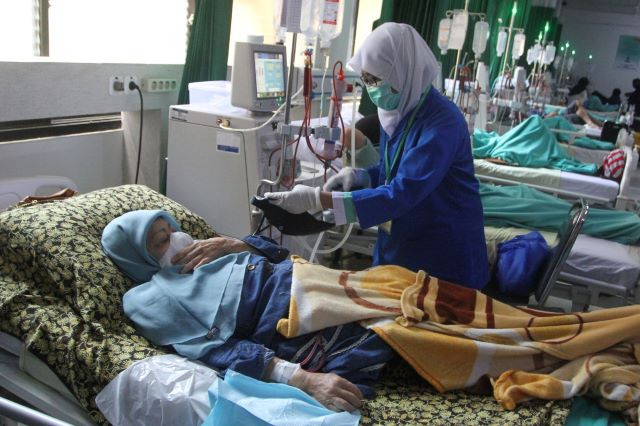Popular Reads
Top Results
Can't find what you're looking for?
View all search resultsPopular Reads
Top Results
Can't find what you're looking for?
View all search resultsThe omnibus health law and Jokowi’s new developmentalism
The Jokowi administration has passed a Health Law that eliminates mandatory minimum spending in the sector, which does not bode well for either the nation's health system or the people's right to help, especially in a post-pandemic world.
Change text size
Gift Premium Articles
to Anyone
O
n July 11, despite the polemic and criticisms, the House of Representatives passed the Omnibus Health Bill into law. Among the widely criticized changes in the new law is the removal of the compulsory 5 percent health spending from the state budget, which was mandated in Health Law No. 36/2009.
As a consequence of this removal, the government no longer has a minimum threshold allocation for the health sector.
Even with the mandatory health spending, Indonesia’s health system already faced substantial financial challenges, especially during the COVID-19 pandemic. The most blatant example of this was the prolonged and overdue deficit of the country’s universal health care (BPJS Kesehatan) from 2014 to 2019.
The issue was settled only in 2021-2022, when the government finally started paying more attention to health issues, thanks to the pandemic. However, with the new Health Law eliminating the mandatory health budget, no one can force the government to set aside a minimum percentage of the state budget for health system development.
This has raised the big question of why the government is reluctant to enforce a ed minimum health spending. Among the many possible answers, we suspect President Joko “Jokowi” Widodo's new paradigm of “developmentalism” might have affected his direction on managing the state budget, which eventually affected his financial policy on public health.
A developmentalist state believes that its primary mission is to achieve swift development to eradicate backwardness and become an advanced country (Feith, 1981). As evidence of this belief system, a developmentalist state will subordinate other political agendas to the main goal of achieving fast economic growth (Bresser-Pereira, 2016).
Many scholars believe that Indonesia, as an emerging economy, has embraced the new developmentalism paradigm, especially since 2016 under Jokowi's presidency. That year marked a notable shift from Jokowi's previous focus on poverty eradication and populist politics to a development-oriented agenda.



















